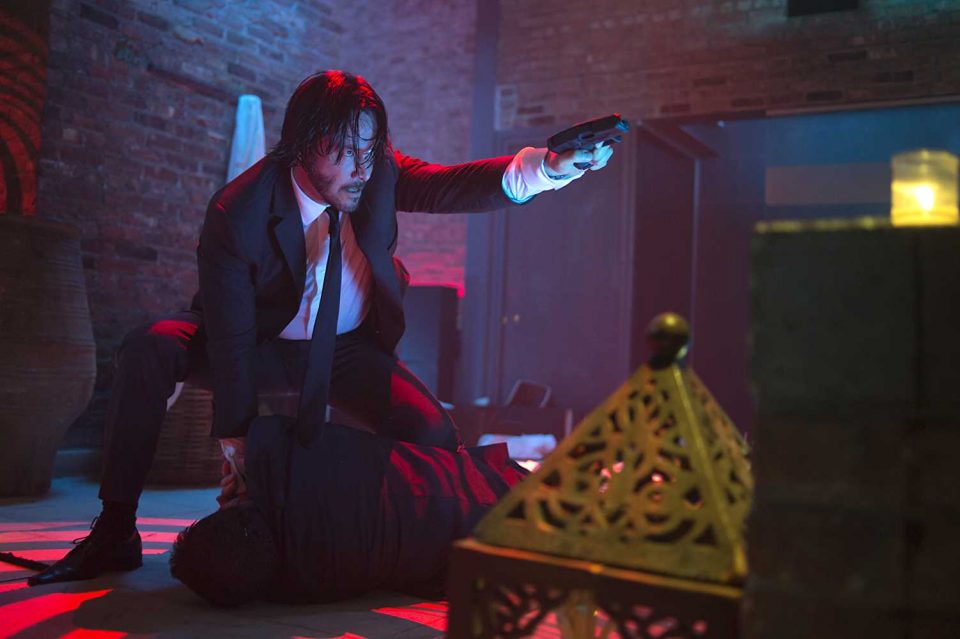Double Feature Fridays: Revenge
Both ‘Irreversible’ and ‘John Wick’ set out to right wrongs with rage, but end up having little in common
Cinephiles rejoice! Introducing Rolling Stone India’s Double Feature Fridays, a weekly column where we talk about two contrasting movies with a common theme. This week, it’s revenge.
Revenge films have been a staple in almost every industry since the Sixties. Each culture has its own versions of the same tale: The protagonist is betrayed, a loved one is harmed, and the audience simmers with rage, sharing their bloodlust. The second half is dedicated to quenching this thirst for justice.

Matilda Anna Ingrid Lutz in ‘Revenge’ (2018).
Japan has Revenge and Confessions, South Korea has Oldboy and I Saw The Devil, India has Agneepath and Ghajini. Many achieve huge mainstream success and span different genres: from action to horror to psychological thrillers. Comedies, too (Legally Blonde counts).
This week on Double Feature Fridays, we’re examining two wildly different approaches to the revenge flick.
Irreversible (2002)Â

Irreversible poster featuring Monica Bellucci.
Argentinean filmmaker Gaspar Noé has always been fascinated by the grimy underbelly of modern life, but none of his work displays it as uncompromisingly as 2002’s Irreversible. At its centre is a married couple. After having an argument at a party, the wife leaves and is raped in a subway tunnel, forcing the husband to track the criminal himself. A lot of films are casually called “shocking,” but this is the real deal. During its release, it was common for people to walk out during the first half. Long, unflinching scenes of gore and sexual violence make it hard to sit through, and harder to rationalize watching.
Irreversible is impossible to recommend to anyone that watches films solely for entertainment, and it polarized audiences everywhere. And yet it has found cult status, currently holding a critics’ score of 57 percent and an audience score of 80 percent on American review-aggregation website Rotten Tomatoes.

Vincent Cassel and Monica Bellucci share a gentle moment.
It stands out for another reason: The way it flips a basic plot on its head. It employs the narrative technique popularised (but not invented) by Christopher Nolan’s Memento, that is, it runs backwards.
It opens with the husband (Vincent Cassel) bashing the rapist’s face in with a fire extinguisher. In the next sequence we see him hunting for the criminal, followed by the attack, then the lead pair partying together before the trauma.
The final act follows the loving couple (Monica Bellucci and Cassel were actually married at the time) flirting, cuddling, optimistic about the future and comfortable in their home. This snatches away any fulfilment the audience could’ve felt from vengeance, imploring us to ponder its implications instead. It is further trivialized by revealing that the husband murdered the wrong man.
The most distressing scenes are done away with in the first half. When it turns to the private life of two people in love, they are full of hope, something that the audience cannot share. In his review, late American critic Roger Ebert observes that it “doesn’t build up to violence and sex as its payoff.” Instead it gives us tenderness, and by that point, we don’t know what to do with it.
John Wick (2014)

John Wick poster featuring Keanu Reeves.
Sometimes, revenge is complicated. Justice is ambiguous and closure is unlikely. Other times, it’s as straightforward as racking up a massive body count. And who could orchestrate that better than Matrix star Keanu Reeves?
John Wick is an action flick whose greatest strength is that it never pretends to be anything else. Legendary ex-hitman Wick is in mourning after losing his wife to cancer. One night, her parting gift is delivered to his doorstep: an adorable Beagle puppy. He spends his retirement in isolation, caring for the dog and his prized Ford Mustang.
He has a run-in with Russian gangsters who’d like to buy his car, and when he denies them, they break into his house, steal the ride, and kill the pup. All this is tackled in the first half hour, and then the mayhem begins.

Wick meets his beagle for the first time.
Wick comes out of retirement to exact his revenge, and leaps from one exhilarating sequence to another. This is the first film by David Leitch and Chad Stahelski, who were Hollywood stuntmen. They focus all their energy on choreographing energetic and fluid action sequences.
In his Vulture review, Turkish-American journalist Bilge Ebiri called it a “beautiful, coffee-table action movie” for a reason. Without ever being gory, there’s an abundance of elegantly filmed hand-to-hand combat, gunplay and driving. Reeves trained hard for months before beginning production, and it shows. There’s no need for blood showers, cheat-code editing or shaky cameras when the performers can really pull-off these breath-taking manoeuvres.
John Wick puts the pedal to the metal in such a way that after a while, you forget his motivation. You’re too busy enjoying the ride.




